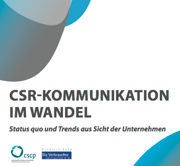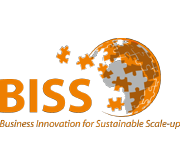
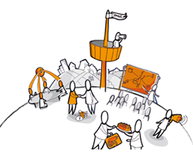
Bringing sustainability into the mass market - that is the aim of SBE projects. We are fostering innovative business models that enable sustainable lifestyles in terms of Multistakeholder dialogues, identifying trends, financing and CSR along global value chains Learn more...
What opportunities does sustainability-driven innovation offer the ICT sector? How can new business value be drawn from sustainability? These are just some questions the ICT sector is facing today. Answering these and moving forward with a sustainability driven growth agenda was the aim of a Sustainable ICT Innovation Workshop. [...] Read more...
Many companies are engaging in corporate social responsibility activities. Yet many of these same companies are challenged to effectively communicate with consumers about their efforts. To understand the information needs of different target markets, the CSCP undertook a survey of consumer-oriented CSR communications [...] Read more...
New sustainable business models can drive a significant change in the way we live our lives, such as sharing products, swapping goods or purchasing services rather than products. How can the impacts of sustainable business models be scaled up from a niche towards a mass market application? Read more...
With the aim of making sustainability easy, improving lives for all, the CSCP launched a series of events named the “Workstudios”. These multi-stakeholder events combine keynote speeches, TED-style panelists, visioning workshops, strategic planning and match-making activities [...] Read more...
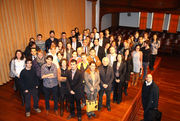
On the 14th of February 2012, the CSCP together with the Regional Activity Centre for Cleaner Production, Mediterranean Action Plan, Boğaziçi University Sustainable Development and Cleaner Production Center and [...] Read more...

Today, resource efficiency (RE) and cleaner and safer production (CP) are fundamental elements in the progression towards a future low-carbon economy and society. Improvements in resource management play a key role in limiting energy consumption and greenhouse gas emissions [...] Read more...
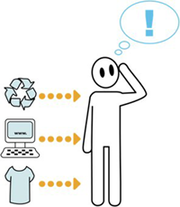
Sustainable Entrepreneurship is becoming a powerful tool that entrepreneurs can seize to meet their social, environmental and economic objectives. Sustainable entrepreneurs are critical actors for changing existing sustainable consumption and production patterns [...] Read more...
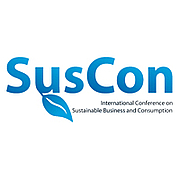
In today’s society lifestyles are rapidly changing. What attracts consumers today might be out of date tomorrow. Regardless of changing consumer preferences one fact remains consistent: lifestyles are imposing ever greater demand on increasingly scarce resources. [...] Read more...
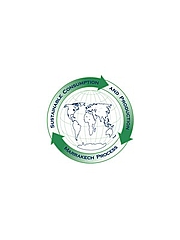
Consumption and production patterns are becoming increasingly global in nature and international cooperation is needed to enable societies to shift towards more sustainable lifestyles. Read more...
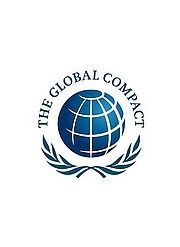
Supporting sustainable consumption is becoming an ever more important issue for business. New consumer movements, such as the LOHAS (Lifestyles of health and sustainability) are emerging. Read more...

What strategies are necessary to enable issues such as climate change, resource scarcity, biodiversity loss, unhealthy eating habits and poor social conditions to find their way into the mainstream media? How can a broader cross section of the population be educated on sustainable consumption and environmentally [...] Read more...
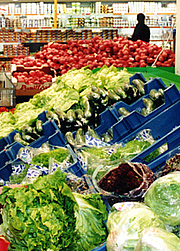
An effective shift toward Sustainable Consumption and Production (SCP) will require new and different roles for different actors. The retail sector has potential to affect change in society like no other industry given their [...] Read more...

The demand for natural resources is increasing across the world and in several cases resource scarcity is a major factor behind increasing resource prices. Many experts predict that this will be a long term trend. As answer to resource scarcity and a vital element [...] Read more...
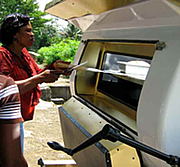
Self sufficient and environmentally friendly development in rural Africa is a priority for alleviating poverty and building sustainable communities. The dissemination of a solar oven technology for bakeries in rural regions in Africa supports [...] Read more...

Analysing hot-spots of resource consumption is an effective way to identify the potential for increasing resource efficiency in global value chains. For this reason hot spot analysis can play an important role [...] Read more...

This project evaluates SCP policy frameworks in eight Baltic countries with respect to the potential to stimulate SCP innovation in small and medium sized enterprises (SMEs). Focus countries include [...] Read more...
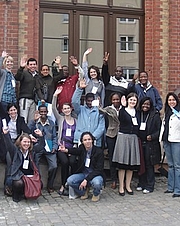
Sustainable entrepreneurship is a relatively new concept. Nonetheless, interest and activities in this new field has grown across the world. Increasingly, creative entrepreneurial individuals are acting upon their environmental and social convictions to support the international sustainability agenda. Read more...

Media can play a key role in promoting sustainable consumption and production (SCP). While there are signs that the mainstream media is beginning to approach SCP issues a number of challenges remain. Read more...

Sustainable products and services offer untapped opportunities for future oriented entrepreneurship and innovation. Some 80% of the life cycle environmental and social impacts that arise from products are determined during its planning and development phase alone. By fusing creativity, understanding and entrepreneurship, eco-friendly, fashionable, and fair products and services can be realised. Read more...
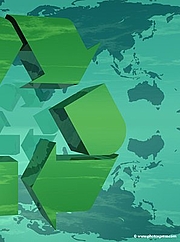
Effective recycling systems are central to resource conservation and material efficiency. Recycling transforms waste into a resource that can be reintegrated into production processes. Consequently, the application of recycling technologies [...] Read more...

In Pakistan there is a pressing need for a shift toward greater energy and resource efficient (ERE) production processes. This shift requires a technological transformation as well as increased knowledge capacity in particular in small and medium-sized enterprises (SMEs). Read more...
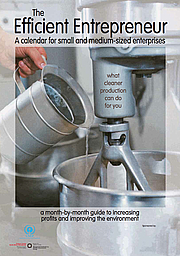
Saving resources is not only about mitigation of pollution and climate change; it is also about creating new growth with the resources still available in a world where populations and ever increasing demand for more products are still growing. The efficient entrepreneur is aware that growth is linked to [...] Read more...

Resource efficiency forms the backbone of a sustainable economy. It enables companies to produce products with fewer resource inputs and by extension reduce environmental impacts, including emissions of greenhouse gases [...] Read more...

Value chain actors play an important role in shifting the behaviour and lifestyles of customers in favour of sustainable consumption. In order to cope with their joint responsibility to promote sustainable consumption, retailers and manufacturers are in need of a collective strategy. Read more...

Small and medium-sized enterprises (SMEs) play a key role in innovation, economic growth, employment creation and the provision of goods and services to underserved communities. Adopting sustainable consumption and production (SCP) as an overarching [...] Read more...

